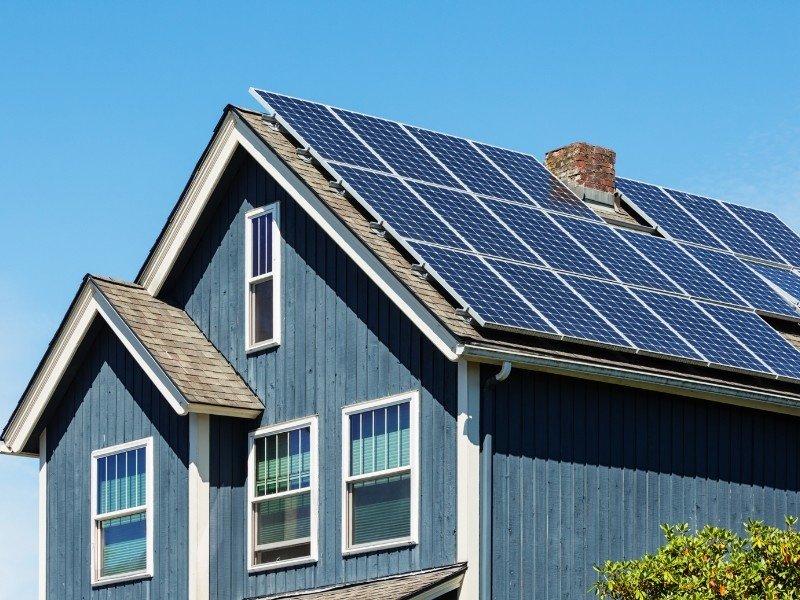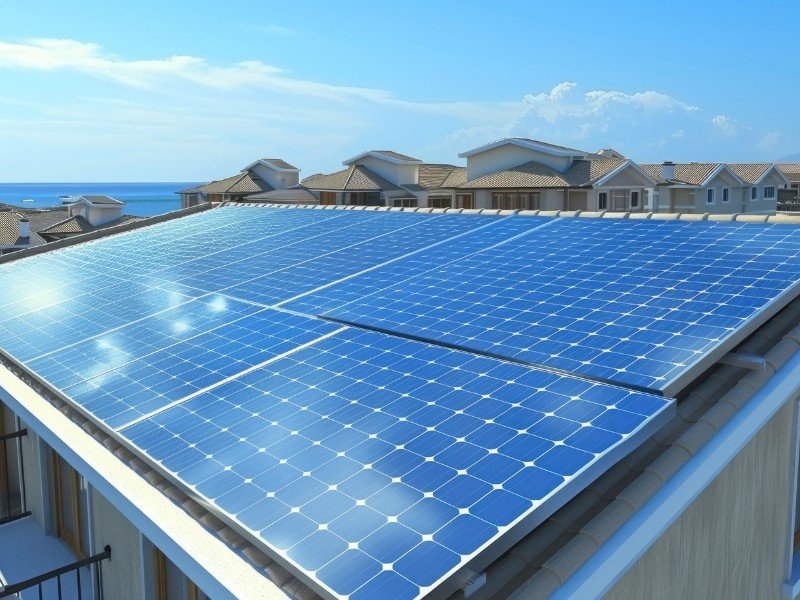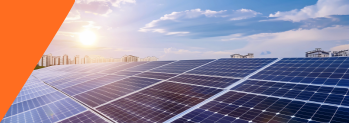Solar panels are gaining more popularity across the globe as technology advances and the cost decreases. Installing solar panels at homes can significantly reduce electricity bills while contributing to a greener environment.
However, it is essential to consider several factors before proceeding with installing solar panels. Here is the list of things to keep in mind-
1. Roof Condition And Structural Integrity:
Assess the condition and structural integrity of your roof before getting a solar panel. Ensure your roof does not need immediate repairs and that its lifespan aligns with that of the solar panels to avoid future maintenance conflicts. Also, verify the load capacity of the roof to prevent potential collapse or damage from the added weight of the panels. Consulting a structural engineer or qualified professional can provide an accurate assessment of your roof’s ability to support the installation. If necessary, reinforce the roof to handle the additional load.
2. Roof Shape, Space And Orientation:
When planning a solar panel installation, the shape, space, and orientation of your roof are critical factors to consider. In India, south or west-facing roofs are ideal for capturing maximum sunlight, with south-facing roofs receiving consistent sunlight throughout the day and west-facing roofs benefiting from intense afternoon sun. Adequate roof space is necessary to accommodate the panels while leaving some area for personal use. However, small, oddly shaped roofs or those with obstructions like chimneys can limit panel installation and affect energy output. The roof’s shape and panel direction also impact efficiency, as panels are positioned to absorb maximum solar energy.
3. Water Drainage:
Solar panel installations often involve additional equipment such as racking and wire harnesses that can potentially obstruct the natural flow of water on your roof. If these components disrupt drainage patterns, water can accumulate in unintended areas, leading to leaks and damage over time. To avoid such problems, it is essential to work with your contractor to ensure that the installation plan accommodates and preserves the natural water drainage system of your roof, thereby safeguarding from water-related issues.
4. Weather Resistance:
Weather conditions such as hail, lightning storms, and hurricanes can significantly impact the longevity and performance of your solar panels. Ensure that the panels you choose are designed to withstand harsh weather and are properly insured to cover potential damage. Investing in high-quality panels with robust weather resistance can save you from costly repairs and replacements in the long run. Additionally, check for warranties that cover weather-related damages to provide extra peace of mind and protection for your investment.
5. Grid Connection:
Integrating your solar power system with the local grid requires careful planning and coordination with your local utility provider. Start by understanding the specific process and requirements, which can vary depending on your location. This includes determining any fees associated with the connection, such as application or inspection costs, and understanding the timeline for getting your system hooked up. Typically, you will need to submit an application and have your system inspected to ensure it meets safety and technical standards. Additionally, you will need to arrange for a bidirectional metre installation to measure both the electricity you use and the surplus energy you send back to the grid.


6. Contractor Research:
Conduct thorough contractor research before installing solar panels. Begin by shopping around online or offline and obtain quotes from multiple contractors to compare costs and services. Look beyond just the price; scrutinise their credentials and ensure they have relevant certifications. Additionally, read customer reviews and testimonials to gauge the quality of their work and customer satisfaction. A reliable contractor should have a solid track record and positive feedback. This diligent approach will help you make an informed decision, ensuring a smooth installation process and long-term satisfaction with your solar energy system.
7. Insurance:
Take care that the insurance you choose for the panels covers any potential damage to your property during the installation process. Solar panel installation involves significant structural changes to your roof, and without proper coverage, you could face substantial repair costs if anything goes wrong. Additionally, proper insurance can protect against accidents or damages that might occur due to severe weather or other unforeseen events during or after installation. Make sure to consult with your insurance provider to understand what is covered and to obtain any additional coverage necessary to safeguard your investment and property.
8. Energy Needs And Consumption:
Before installing solar panels, it is important to assess your household’s energy needs and consumption patterns. Start by reviewing your past electricity bills to understand your average monthly usage. Consider any anticipated changes in your energy consumption, such as adding new appliances or electric vehicles. This analysis helps determine the size and capacity of the solar system you will need. Additionally, think about your future energy goals – do you want to offset all your electricity usage or just a portion? Understanding your energy needs ensures you invest in a system that is neither undersized nor overly large for your requirements.




